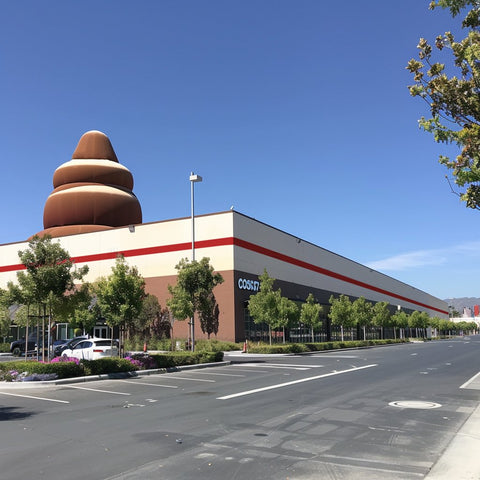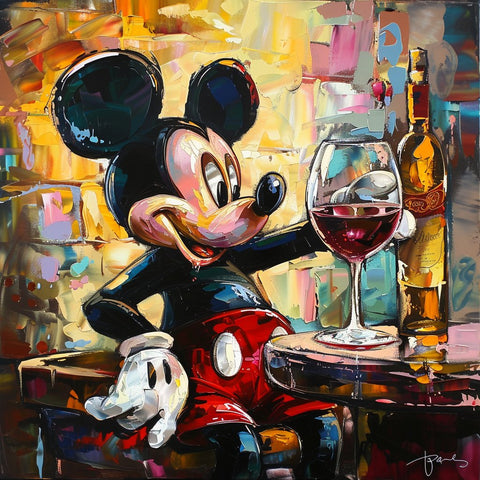In the world of wine today, the stories behind the bottles are just as important as what's in the bottles. It's Women in Wine Month, so let's take the story of Isabella Simi from Simi Winery. Isabella was thrust into the wine business at age 18 when both her father and brother died suddenly. Soon after this personal tragedy, the Volstead Act was passed, prohibiting the sale of alcohol across America. To survive prohibition, Isabella capitalized on a loophole in the law that allowed the sale of sacramental wine to churches. This allowed her winery to stay afloat during prohibition, and once the law was repealed, she was one of the few wineries with product, so all the pent-up demand catapulted the brand.
I am truly marginalizing her accomplishments by not mentioning the immense sexism she must have endured in the early 1900s as a female in business. Despite the rampant discrimination against women at the time, Isabella thrived because she not only led the winery for 70 years but also innovated. You know those tasting rooms that every winery now boasts? Well, that was Isabella's idea. Doesn't this John Dutton from Yellowstone-like story of grit and resolve in the face of adversity make you want to try her wine? Well, if it doesn't, take off your Vision Pros and try again.
Unfortunately, there are also less inspiring stories to tell in the world of wine. Like the story of the membership-based warehouse that sells $1.50 hot dogs and Dom Perignon and Veuve Clicquot at virtually wholesale prices. Enter the Costco effect, where the retail giant's pricing strategies cast a long shadow over independent wine shops and producers alike.
Costco, renowned for its bulk-buying bargains and wholesale prowess, applies a standard percentage increase on top of its cost for wine. Trade insiders say the maximum is usually 8%. On the surface, this may seem like a win-win situation for consumers – who doesn't love a good deal on quality wine? However, delving deeper reveals a diabolical narrative with far-reaching implications for the wine industry as a whole.
Costco's pricing strategy commoditizes wine, reducing an agricultural product to a box of cheese puffs. By consistently offering wines at lower prices compared to smaller retailers, Costco fosters a culture of price-centric consumer behavior. In this landscape, wine becomes less about its intrinsic value and more about its affordability, eroding the appreciation for the artistry and diversity that define the world of wine.
For independent wine shops, Costco's business model poses a formidable challenge. First, there's the price of admission: paid membership. Costco generated $4.58 billion in membership revenue in 2023. Then, you have the lower overhead costs represented by the concrete floors, sterile lighting, and no storage rooms. This puts pressure on smaller establishments to compete on price, squeezing already narrow profit margins and jeopardizing their viability. America was built on Main Street.
Moreover, Costco's dominance in the wine market can stifle diversity and innovation. By prioritizing volume and cost-effectiveness, Costco often opts for established, mass-produced brands over smaller, boutique wineries. As a result, lesser-known producers struggle to gain traction and visibility, hindering the exploration and appreciation of unique and artisanal wines. Hmm. Wondering why Cabernet Sauvignon and Merlot taste the same?
From the perspective of wine producers, Costco's pricing strategy presents a double-edged sword. While securing a spot on Costco's shelves can provide unparalleled exposure and access to a broad consumer base, it often comes at the expense of profit margins. Forced to meet Costco's pricing requirements, producers may be compelled to compromise on quality or cut costs elsewhere, undermining viticulture.
In the long run, the commoditization of wine perpetuated by Costco's pricing practices risks homogenizing an industry celebrated for its diversity and complexity. (Yes, I am the same guy who wrote a diatribe against Bordeaux. Doh! To paraphrase Walt Whitman, I am large. If I contradict myself, I contradict myself.)
So, what can be done to preserve the integrity and vitality of the wine industry in the face of Costco's pricing juggernaut? Consumers hold the key. Yes, you. By prioritizing value over price and seeking out diverse and ethically sourced wines from independent retailers and producers, consumers can champion a more sustainable and vibrant wine culture led by mavericks like Isabella Simi. After all, the true worth of a bottle of wine lies not in its price tag, but in the stories it holds and the memories it creates. But if you have a good story that started with a bottle of Kirkland wine, please comment because I want to hear it.

The Costly Consequences: Costco's Pricing Structure and its Impact on Wine Culture Pt. 3
Mar 22, 2024Michael Bozzelli
Share



Comments (1)
Costco’s good for the large wine producers and the little ones creat their customers via social media and word of mouth